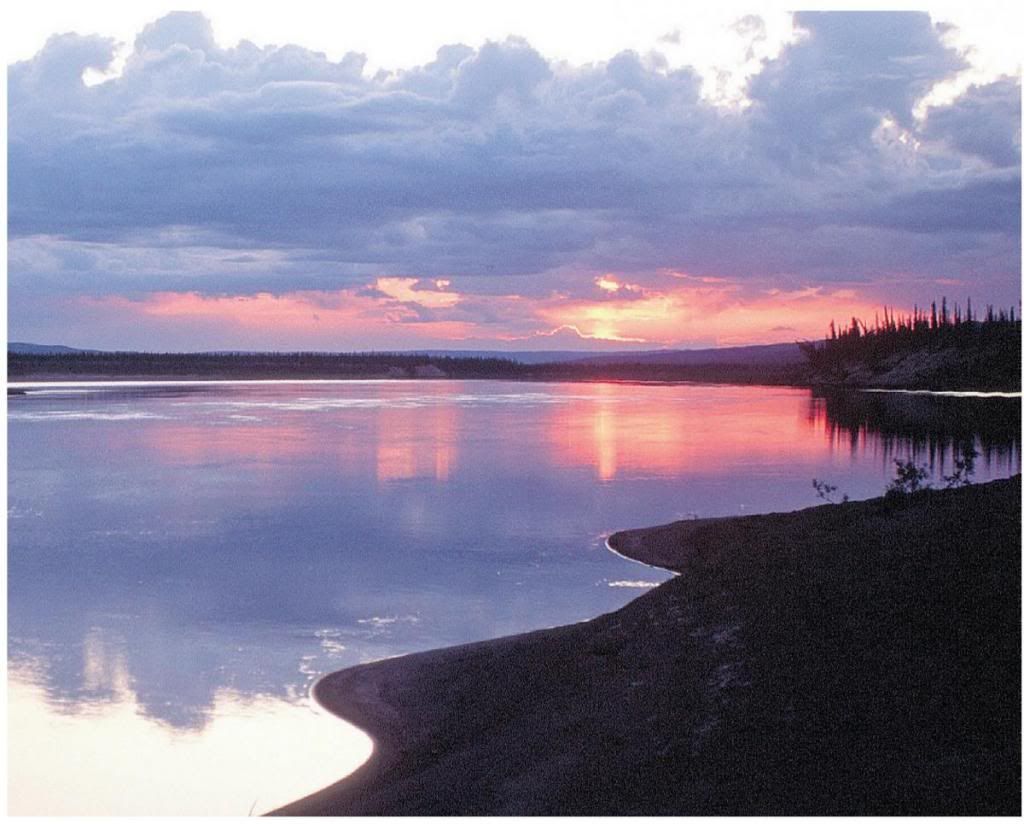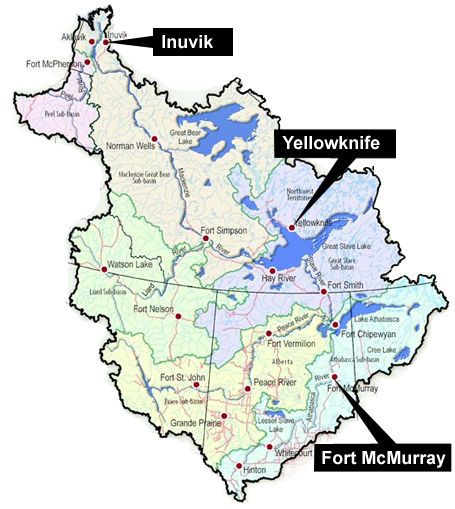Photo & Map from Calgary Heraldhttp://www.calgaryherald.com/business/Vast+Mackenzie+River+basin+under+threat+international+report/8502570/story.html#ixzz2VqYl6pTcQuotes from Science Daily http://www.sciencedaily.com/releases/2013/06/130610084312.htm
The sun sets on the Mackenzie River in Nahanni Butte, N.W.T. An environmental think-tank says the area drained by the river is one of the world's largest remaining intact ecosystem.
Photograph by: Ed Struzik, Postmedia News Files , The Canadian Press

Importance of the MacKenzie Basin
Researchers have compared the Mackenzie Basin to Africa's Serengeti Plain, an area of comparable size. Both ecosystems harbour high biodiversity and biological productivity compared to others in their respective regions. There are some 45,000 biologically productive lakes in the Mackenzie Basin.
Meanwhile, the ice and snow cover in the Mackenzie Basin provides a vital refrigerator-like cooling role, in weather and climate patterns throughout the northern hemisphere.
University of California Prof. Henry Vaux, Chair of the Rosenberg Forum, stressed that the average temperature in the Basin has already warmed beyond the 2 degree Celsius upon which nations agreed in Copenhagen as a limit not to be surpassed.
And, he noted, the World Meteorological Organization (2012) reported that ice cover in the Arctic between March and September of 2012 had been reduced by an area of 11.83 million square kilometers.
"To put that in perspective, Canada is about 10 million square kilometers in area; the area of Arctic sea ice that melted last summer was almost 2 million square kilometers larger," says Dr. Vaux.
The report, based on hearings conducted in Vancouver Sept. 5 to 7 last year, supported by the Walter and Duncan Gordon Foundation, says warm air now arrives in the north earlier in the spring and often persists longer into the autumn.
The Mackenzie Basin helps moderate climate by capping hundreds of millions of tonnes of greenhouse gases in permafrost soils, which cover 20% of Earth's surface. Deep permafrost -- in some places two kilometres deep -- can take 100,000 years to form.
In regions like the Mackenzie Basin, however, where average annual temperature is only slightly below freezing, permafrost is much thinner. Its melting will release massive quantities of methane (a greenhouse gas 21 times more potential per molecule than CO2) into the atmosphere.
Rising Arctic temperatures are already affecting the hydrological cycle of the Northwest Territories and other parts of Canada "and all signs indicate these changes will accelerate over time," according to the report.
Glacier coverage has declined by approximately 25 per cent in the last 25 years and in spring snow cover in the Canadian Rockies disappears about one month earlier.
Though these changes are already significant, "and in some cases border on catastrophic," the report says, climate simulations suggest increased warming will lead to even higher temperatures of a level not seen on Earth in more than 10,000 years.
